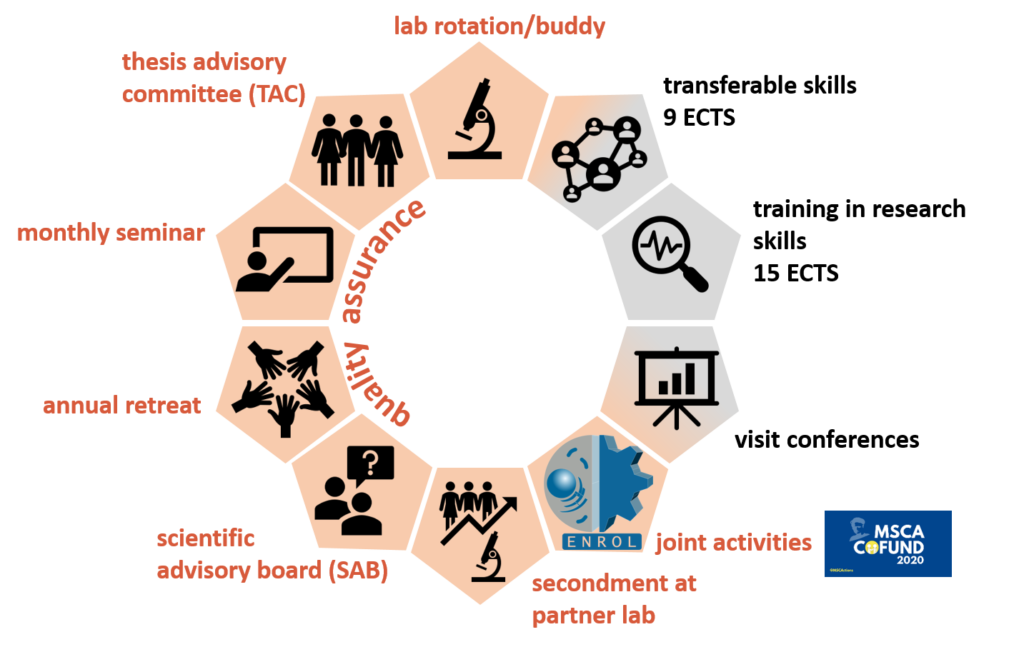MatureTissue Doctoral School
Each PhD student of the MatureTissue doctoral college (DC) works on their own defined PhD topic. Each topic requires interaction with different labs participating in MatureTissue DC of the UASTW and TUW to complete all work packages. This fosters communication, team work and ensures interdisciplinary character of the projects.
In addition, each PhD student is supported by a lab buddy (senior PhD student or PostDoc from the lab of the main supervisor) and a thesis advisory committee (TAC). The PhD student not only meets with the main supervisor on regular basis but also the TAC. The TAC meetings are less frequent but carry the important task of quality assurance, carreer development and constructive guidance for each student. In addition, monthly seminars and annual retreats also serve as opportunities for PhD students to present their progress and obtain input for their individual projects. An international scientific advisory board (SAB) provides valuable feedback and helps to steer the projects by giving advices and feedback to the team of PhD student and his/her TAC.

TAC meetings are based on written reports submitted by a PhD student prior to each meeting and are meant to asses achievements to date, discuss results, identify risks and challenges, develop strategies to overcome and master the latter, and, set out the workplan for the next 12 months. The submitted reports shall be extended from meeting to meeting and in the end serve as a draft for the PhD thesis.
An important step is the TAC meeting approximately 11 months after the start of each project. This TAC meeting, which will take place during the first annual retreat, is meant as a qualifying assessment. There, the PhD students shall present the finalized plan for the PhD project, alongside with a literature survey on their specific topic, some initial results and a time plan for the coming year.
The TAC meetings, as well as the qualifying assessment, will formally be checked and enforced by the TU Wien Doctoral School. This highly structured process is meant to assure that both PhD students and supervisors dedicate themselves to the projects to ensure success of the programme.
Furthermore PhD students are expected to pursue national and international collaborations and academic secondments, that is research stays nationwide or abroad as well as visits to conferences and symposia. Beside the individual PhD-topic each PhD student will closely interact with all other PhD candidates, PIs and their groups as well as with the EU-funded Engineering for Life Sciences Doctoral Programme (ENROL, https://www.tuwien.at/en/enrol ) offering opportunities for numerous synergies with 20 other PhD students a significant number of them working in the same research field, such as exchange of ideas, collaboration, social activities and training.
